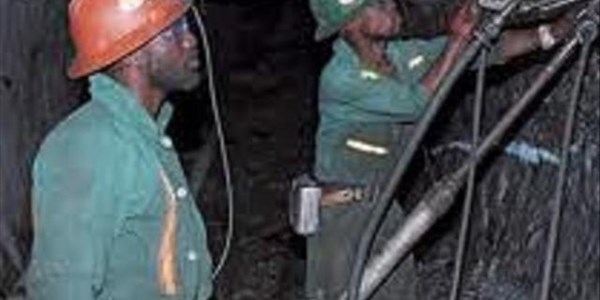Business
Chamber of Mines rejects criticism of SADC mining industry’s record─── 07:49 Tue, 25 Oct 2016

Johannesburg - The Chamber of Mines has rejected the view that the mining industry has had a purely negative impact on society in mineral-rich sub-Saharan Africa.
Instead, the Chamber said that the industry had been the basis for economic development in South Africa and many other parts of the developing world.
This comes after the chairperson of the Bench Marks Foundation, Bishop Jo Seoka, on Monday said that the Southern African Development Community (SADC) region had the worst health and poverty gap on the planet, despite it being a mineral rich resources region.
Seoka also said they had found that mines did not do proper human rights and social impact assessments, but continued to operate without water licenses.
“[Mining] is seen as the holy cow of economics and sacrosanct. Not to be questioned or challenged, in spite of the fact that hundreds of thousands of poor people live in abject poverty because of loss of arable land, livelihoods, aggravating health conditions, cultural and social upheaval, all of which manifest itself in unemployment and pushes poor communities to the margins of society,” Seoka said.
Seoka was speaking at the opening of Bench Marks Foundation’s two-day conference in Johannesburg.
In reply to this criticism, Chamber of Mines spokesperson, Memory Johnstone, disputed the allegations that South Africa mining companies were operating without water licenses.
She said the mining industry continued to contribute significantly to the South African economy and that it did so not only at a macro-economic level, but also at local and community levels.
“While the industry acknowledges that its history has not always been a proud one and is seeking a new way forward where mining is relevant to South Africa, its contribution goes beyond economic inputs and it is committed to addressing the legacies of the past and to contribute meaningfully towards creating a sustainable and prosperous mining industry that would benefit all stakeholders,” Johnstone said.
“The Chamber and its members recognise that there may be potential adverse impacts of mining, particularly on the environment and on local communities.”
Johnstone said the mining industry had contributed 7.7 percent to GDP, and created 1.4 million jobs directly and indirectly whilst contributing R2 billion to local economic development among other things.
She said good practice in the industry meant that mining houses had to avoid or mitigate adverse impacts to communities.
“We hope that the vast majority of the industry upholds good practices in this regard and through the Chamber’s Membership Charter, members commit to compliance with all relevant legislation, and to making every possible effort to meet or better the targets outlined by the Mining Charter,” Johnstone said.
“We recognise the important role that organisations like the Bench Marks Foundation have to play in monitoring the industry’s activities. The Chamber remains committed to continue its engagements with the BMF and others in this regard.”
ANA













